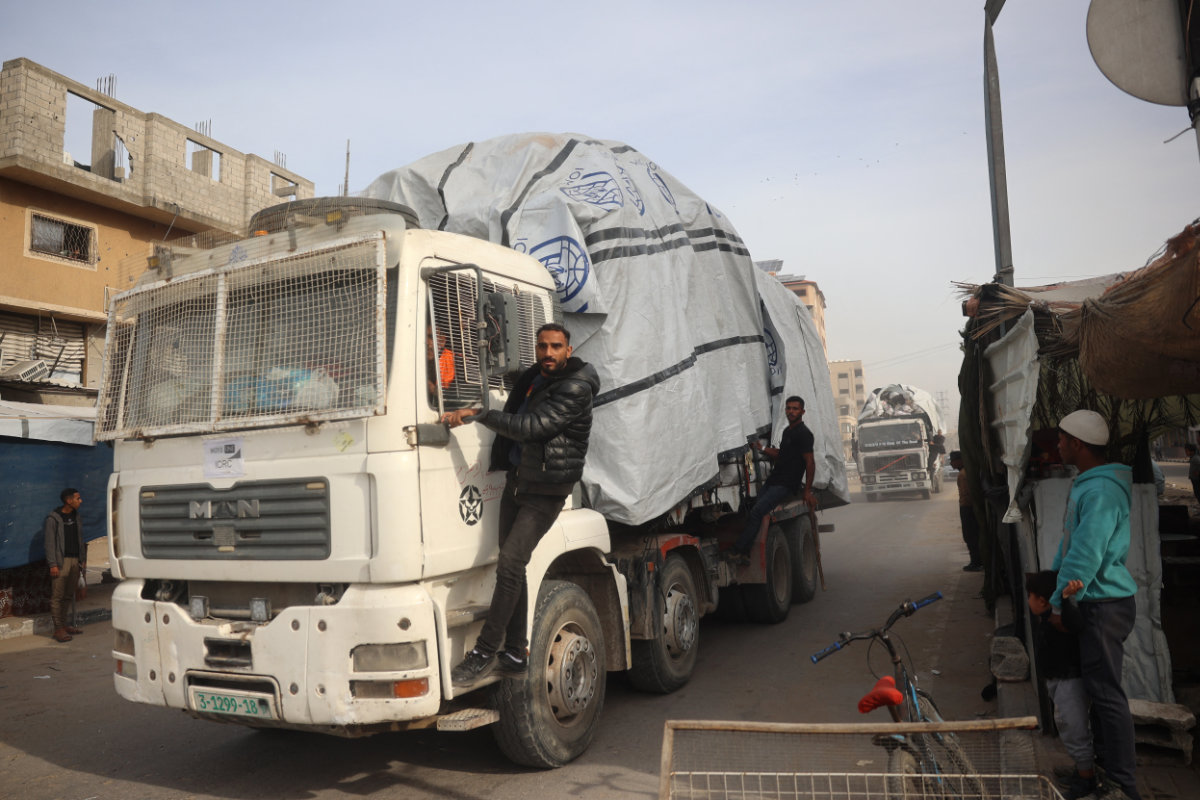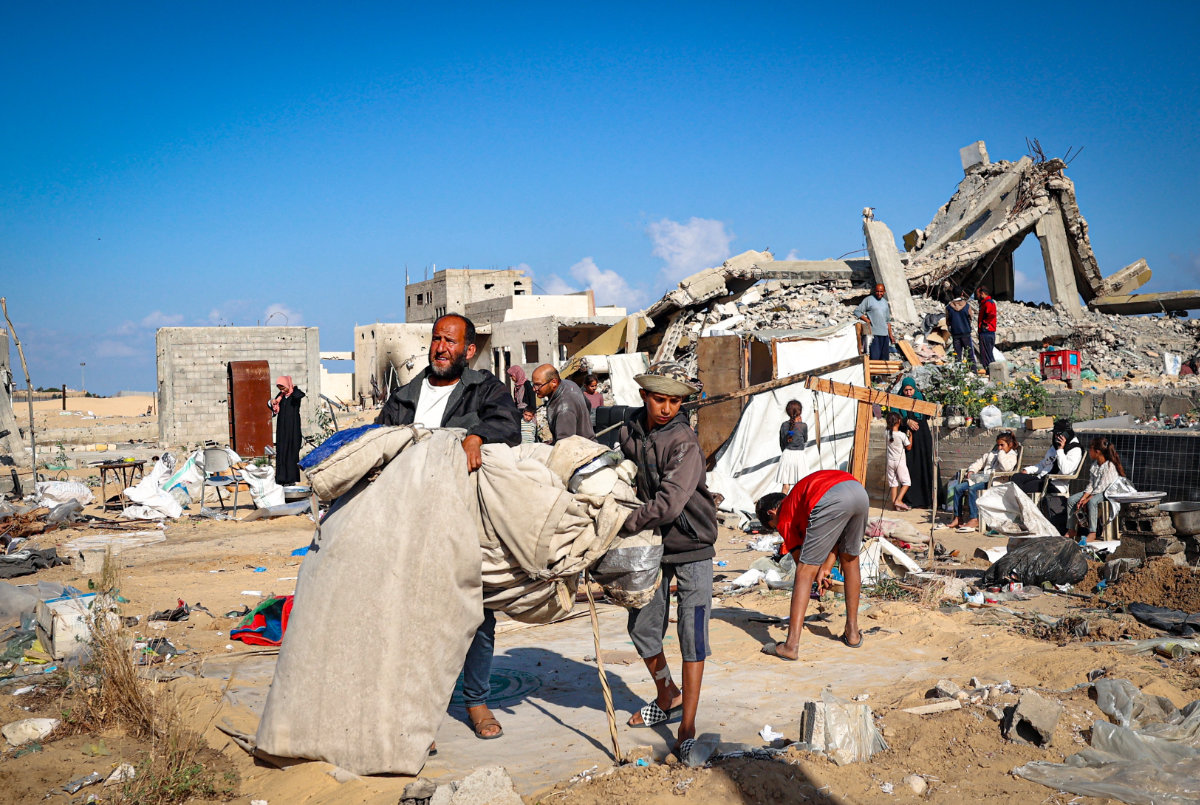LONDON/BEIRUT: The president of the Lebanese Executives Council thanked the government and people of Saudi Arabia for their “unwavering support” for his country amid Israel’s attacks on Hezbollah.
In a press briefing on Monday, Rabih El-Amine thanked King Salman and Crown Prince Mohammed bin Salman for their efforts to assist the Lebanese people and acknowledged the Kingdom’s continued solidarity and “steadfast allyship” with Lebanon.
A second Saudi relief plane, operated by the King Salman Humanitarian Aid and Relief Center, left from Riyadh on Monday, carrying food, medical supplies and shelter aid to Beirut International Airport.
El-Amine highlighted the immediate establishment of a humanitarian aid bridge as a testament to Saudi Arabia’s support, adding: “The Kingdom has yet again shown itself to be Lebanon’s big sister.”
He continued: “In addition to the generous support from Saudi Arabia, we are also receiving aid from the UAE, Kuwait, Qatar, Turkiye, Egypt, and many others. We are immensely grateful to these brotherly nations and are seeking their continued support in helping Lebanon achieve a ceasefire to preserve what remains of our beautiful country.”
El-Amine issued an urgent appeal for more humanitarian assistance to address the devastation affecting millions across the country wrought by the Israeli offensive, especially in large parts of Beirut, the south of the country and the Bekaa regions, which have been heavily impacted.
“Since last October, Lebanon has been thrust into a conflict that the country neither desired nor can sustain. Despite our solidarity with Gaza, the situation has escalated into devastation,” he said.
According to the LEC, the destruction has left many Lebanese citizens displaced, with homes reduced to rubble and temporary shelters springing up across streets, beaches and overcrowded displacement centers.
“The aid we anticipate from generous and concerned nations should be directed precisely where it’s most needed — toward the innocent Lebanese civilians who have been swept into this conflict against their will.
“Consequently, we earnestly urge the Lebanese government to rise to the occasion and effectively assist its people during these trying times, with the eyes of the world upon us, it is imperative that we act with integrity to acknowledge the suffering and losses endured by our citizens.
“In all fairness, we should commend the resilience and resourcefulness of the Lebanese people as they navigate these uncertain waters. The spontaneous solidarity among the citizens has played a vital role in welcoming and supporting the displaced, often stepping in where official institutions have faltered,” he added.
El-Amine acknowledged it would be difficult to ensure all of the aid went to the people who required it most.
“Unfortunately, guaranteeing that aid reaches the right people is beyond our control, we can only hope and appeal to the government and its institutions to fulfill their responsibilities and ensure that assistance reaches those in most need,” he said.
“Thankfully, organizations like KSrelief are collaborating closely with trusted local partners to ensure the aid is effectively distributed to those who require it most, which gives us a sense of optimism,” he said.
Lebanon’s humanitarian crisis is further exacerbated by economic difficulties and the large refugee population, including 1.5 million Syrians and half a million Palestinians. El-Amine highlighted the significance of Saudi Arabia’s diplomatic role in addressing these challenges.
“Saudi Arabia’s role on the international stage, alongside other partners, is crucial in alleviating regional tensions,” he said.
The conflict has brought attention to Lebanon’s political impasse, as the country has been without a president for months. The council praised Saudi Arabia’s continued efforts to help resolve the political deadlock by urging the Lebanese parliament to elect a new president and form an effective government.
“This task has been challenging, largely due to Iran’s influence through Hezbollah in Lebanon, the Lebanese people, in general, do not desire war or to fight for Iran. While they sympathize with Gaza, they are not willing to sacrifice Lebanon in the process,” El-Amine said.
“They are calling for an immediate ceasefire, the election of a new president, and the formation of an effective government; our ultimate goal is to rebuild the country and foster national reconciliation while upholding the constitution, ensuring that only the Lebanese army has the authority to bear arms in defense of the nation.”



































